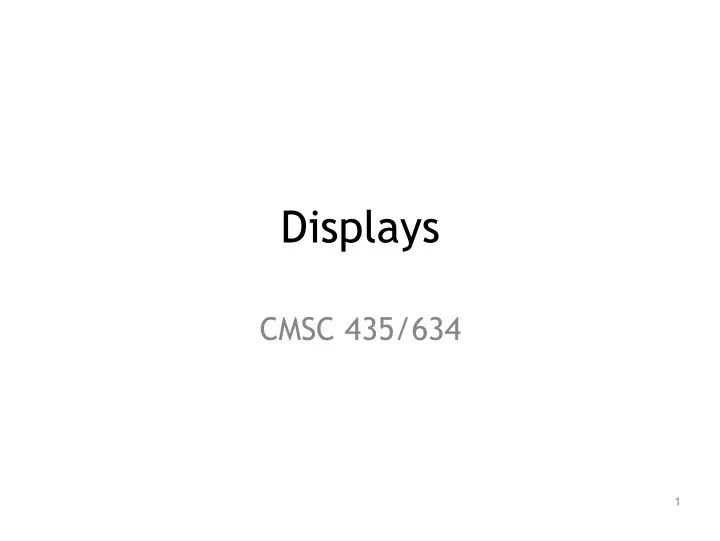

Displays CMSC 435/634 1
Light • Visible Range: 390-700nm • Luminance has large dynamic range – 0.00003 Moonless overcast night sky – 30. Sky on overcast day – 30000. Sky on clear day – 16,000. Snowy ground in full sunlight • Actual colors result from spectral curves – dominant wavelength, hue – brightness, lightness – purity, saturation 2
Physiology • Rods – active at low light levels (scotopic vision) – only one wavelength sensitivity function • Cones – active at normal light levels – three types: sensitivity functions with different peaks 3
Spectral Sensitivity 4
Additive Color Mixing 5
Gamut 6
Random/Vector Display 7
Examples of Random Scan 8
Examples of Random Scan 9
Examples of Random Scan 10 lasershows.ro / Manick Sorcar Productions
Raster Display 11
Raster Display • Each left-to-right trace is called a scan line • Each spot on the screen is called a pixel • Beam turned off to swipe back and up screen – Called a retrace or blanking interval 12
Vector vs. Raster 13
Color CRT 1) Electron guns 2) Electron beams 3) Focusing coils 4) Deflection coils 5) Anode connection 6) Shadow mask 7) Phosphor with RGB zones 8) Phosphor / Mask close-up 14 Søren Peo Pedersen
Color CRT • Uses triads of red, green & blue at each pixel • Uses 3 electron guns – one for each color • Shadow mask used to make each kind of phosphor only visible from one gun 15
Liquid Crystal Display (LCD) • Light enters polarizer • Nematic crystals twist based on voltage • Allowing light to pass through to other polarizer 16
Color LCD 17
Light Emitting Diode 18
Gamma 19
Gamma Correction 20
Recommend
More recommend